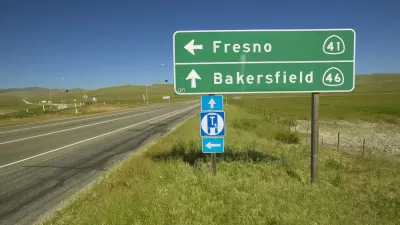The rollback of gas tax indexing is projected to lose $1 billion for the Bay State over the next decade. Initiative proponents claim that the legislature can increase the gas tax anytime, though last year's tax increase was the first since 1991.
Prior to the election, we noted that Stephen Lee Davis of Transportation for America sees the Massachusetts ballot measure as a "bellwether for efforts to raise state transportation revenue."
Nicole Dungca of The Boston Globe writes about the dire consequences to state transportation funding now that 52 percent of voters chose to support the initiated state statute.
Michael J. Widmer, president of the Taxpayers Foundation, who helped campaign against the repeal, said he believed some of the biggest transportation projects, such as the South Coast Rail project that would provide commuter rail service from New Bedford and Fall River to Boston, could now be on the chopping block.
Explaining their opposition to gas tax indexing for inflation, Holly Robichaud of Tank the Gas Tax, "said gas tax indexing was tantamount to taxation without representation," writes Dungca.
The gas tax will remain at 24 cents per gallon, plus an underground tank removal tax of 2.5 cents per gallon. Only the indexing aspect of the 2013 bill that increased the gas tax last year by three cents was eliminated.
Mayor Joseph A. Curtatone of Somerville, who campaigned against the repeal, said (Republican) Governor-elect Charlie Baker and the Legislature need to identify another funding mechanism to avoid the 'real public safety crisis' of deferred maintenance of the state’s bridges and roads," writes Dungca.
Another sign that the "high revenue potential of a vehicle-miles-traveled fee" makes this option inevitable?
[Hat tip to AASHTO Daily Transportation]
FULL STORY: Transit officials say repeal could cost $1b over decade

Planetizen Federal Action Tracker
A weekly monitor of how Trump’s orders and actions are impacting planners and planning in America.

Congressman Proposes Bill to Rename DC Metro “Trump Train”
The Make Autorail Great Again Act would withhold federal funding to the system until the Washington Metropolitan Area Transit Authority (WMATA), rebrands as the Washington Metropolitan Authority for Greater Access (WMAGA).

The Simple Legislative Tool Transforming Vacant Downtowns
In California, Michigan and Georgia, an easy win is bringing dollars — and delight — back to city centers.

The Small South Asian Republic Going all in on EVs
Thanks to one simple policy change less than five years ago, 65% of new cars in this Himalayan country are now electric.

DC Backpedals on Bike Lane Protection, Swaps Barriers for Paint
Citing aesthetic concerns, the city is removing the concrete barriers and flexposts that once separated Arizona Avenue cyclists from motor vehicles.

In These Cities, Most New Housing is Under 441 Square Feet
With loosened restrictions on “micro-housing,” tiny units now make up as much as 66% of newly constructed housing.
Urban Design for Planners 1: Software Tools
This six-course series explores essential urban design concepts using open source software and equips planners with the tools they need to participate fully in the urban design process.
Planning for Universal Design
Learn the tools for implementing Universal Design in planning regulations.
Smith Gee Studio
City of Charlotte
City of Camden Redevelopment Agency
City of Astoria
Transportation Research & Education Center (TREC) at Portland State University
US High Speed Rail Association
City of Camden Redevelopment Agency
Municipality of Princeton (NJ)



























